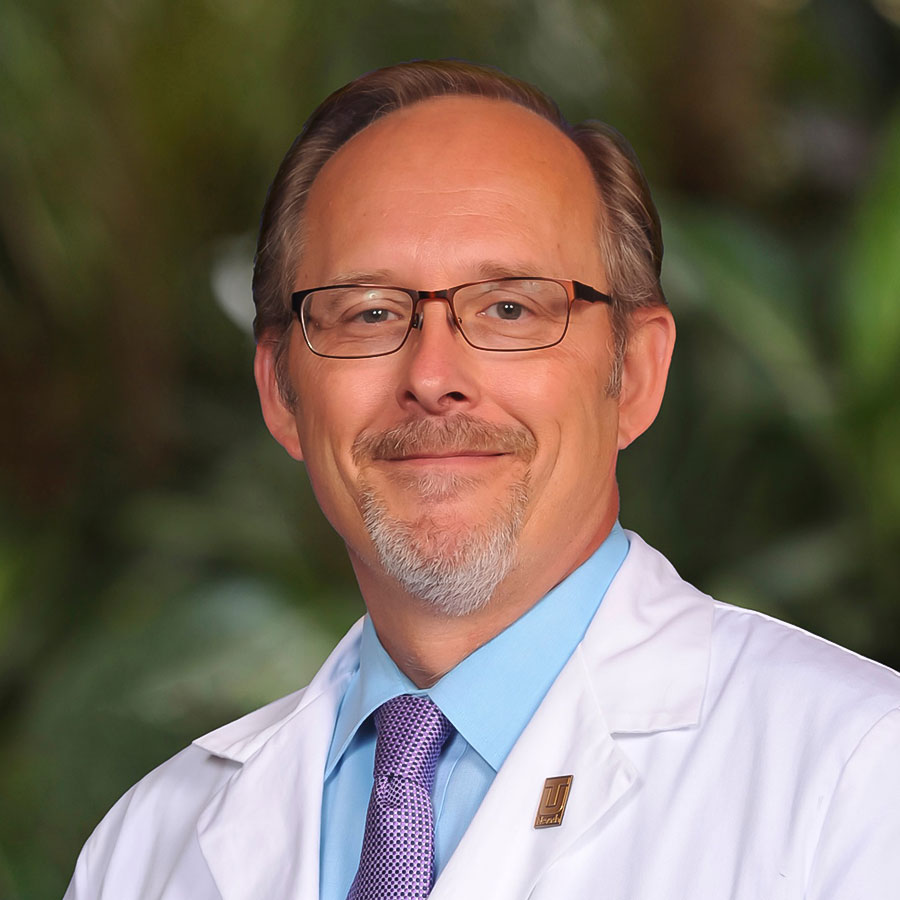Biography
Dr. Phil Tobin has twenty-six years of clinical practice as a physician assistant (PA). Prior to joining PBA, he was the director of the School of PA studies at Touro University Nevada for five years. Dr. Tobin served as the director of the Mercer University Physician Assistant Program and chair of the Department of Physician Assistant Studies for four years. Before that he was faculty for six years in the physician assistant program at Harding University. He is the past chairmen of the board for The Shade Tree, a nonprofit for homeless and domestically abused women and children.
Dr. Tobin is on the advisory board for Morehouse Medical School’s PA program at HBCU. He is a past president of the Arkansas Academy of Physician Assistants. Dr. Tobin is a retired Air Force officer of nearly 23 years, with his last assignment as the deputy branch chief of the Radio Frequency Bioeffects branch of the Air Force Research Lab. He has been involved in clinical practice for over twenty-six years in various disciplines from family practice to emergency medicine. He also has practiced as a physician assistant at the Stallman-Touro Clinic located within The Shade Tree women’s shelter. His research focus is directed toward innovative PA education, homeless outreach, and stopping human trafficking. He is married with five children ranging from 35 to 10, three grandchildren, one dog, and an old orange cat.
Tobin joined Palm Beach Atlantic in July 2021, was the director of the School of Physician Assistant Studies at Touro University Nevada, and previously directed the Mercer University Physician Assistant Program. The master’s degree program he is developing at PBA will produce graduates to fill critical needs felt across the nation. The program is approved by the Southern Association of Colleges and Schools (SACSCOC) and pending approval by the Accreditation Review Commission on Education for the Physician Assistant, Inc.
“U.S. News and World Report just came out listing PAs being the number-one job in the country,” said Tobin in a telephone interview last week. While the typical physician has invested four years in medical school, plus three years in residency, students can complete a PA program in 27 months, he said.
“If you want to go out and take care of people and not have a huge amount of debt, PA is the way to go,” said Tobin.
PBA’s goal is to launch its first class of PA students in October 2024. Meanwhile, Tobin will develop the program, shepherd it through a lengthy accreditation process and continue to hire faculty.
Prospective students can come with a bachelor’s degree in any major, though they will need prerequisites such as anatomy and physiology. The ideal candidates for PBA’s program, Tobin said, will be capable of becoming “caring, empathetic providers.” They must have a good foundation in education, he said, “but they also must have grit, because it is a very rapid-paced, high-intensity, high-stakes program.”
Tobin said the PA master’s degree typically includes 17 months of classroom education followed by 10 months of clinical education with students working through specific core rotations in the community. He can envision one of those rotations sending PBA students to serve disadvantaged communities and countries. “That really drives home the point of taking care of people,” he said. After such an experience, when the PA graduate is working on his or her new full-time job, “your heart will pull you back to wanting to take care of those less fortunate. You are fulfilling a higher mission.”
Tobin has sought PA professors with the same mission perspective. “I’m looking for faculty that really have a heart for taking care of people, so that professors can be out there serving with these students. There’s nothing richer than a student being with a faculty member taking care of a patient and getting to see them care for people.”
Dr. Duane Meeks, associate provost for strategic innovation, said Tobin was chosen for the new position after a national search. “He has been a PA since 1995, and he has infused his faith into his practice,” said Meeks. “Dr. Tobin sees the occupation not as just a career, but a way to serve people with the love of Jesus Christ. So I think he’s a terrific fit for PBA.”
Meeks noted that the University already has a strong and growing mission in the healthcare arena, with nursing, pharmacy and other healthcare-related degrees. With the PA degree, he said, “I think you’re going to see a new program of tremendous interdisciplinary collaboration.”
Tobin agreed with Meek’s prediction, saying he was impressed by the quality of the healthcare disciplines and undergraduate sciences already in place at PBA. The University is poised for continued, significant growth and innovation in health sciences in the next five or ten years, Tobin said.
Adding a PA degree is “just the start of something much bigger,” said Tobin: “something that God has in store for us that we don’t even know about yet.”
